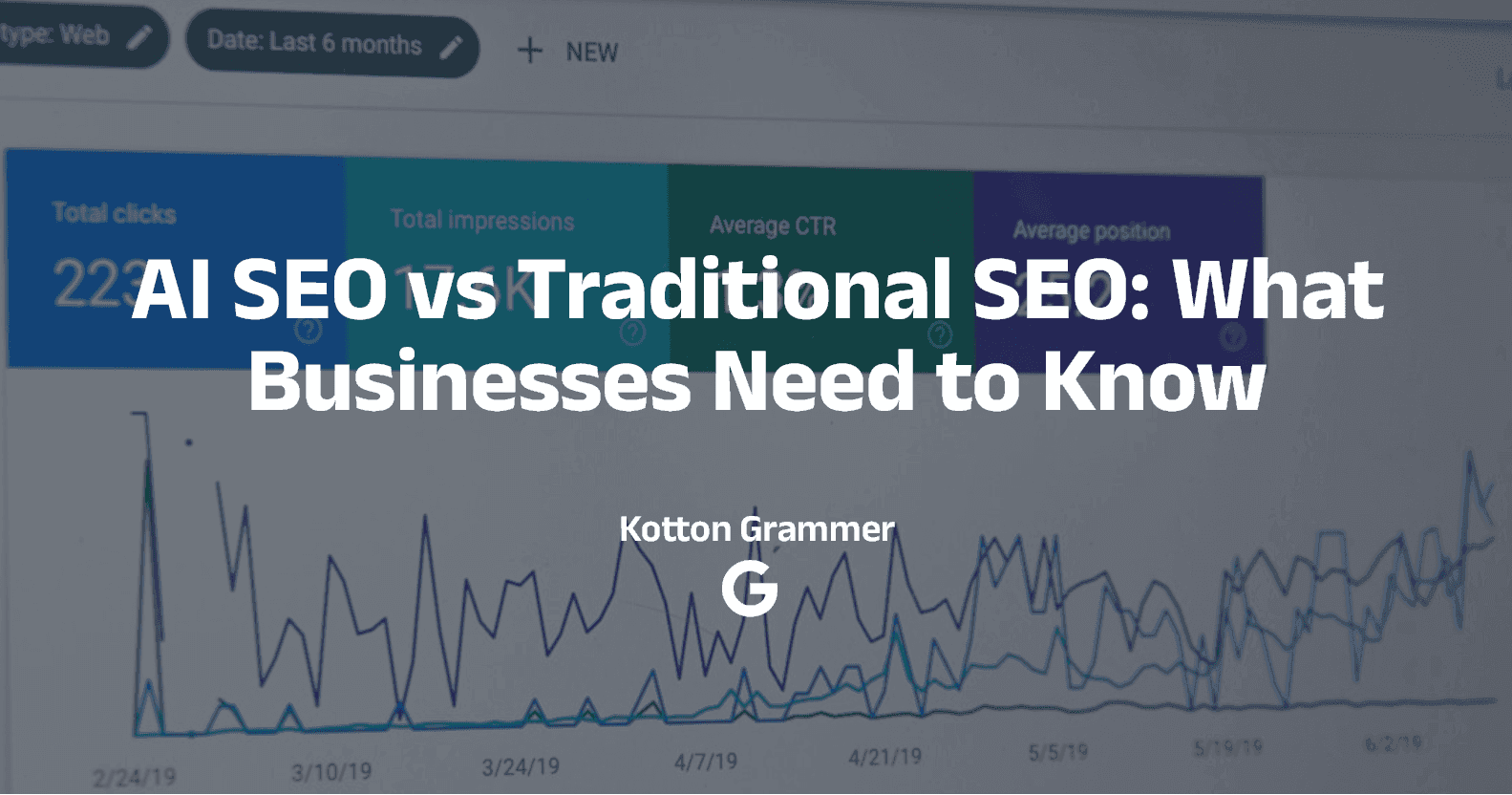
AI SEO vs Traditional SEO: What Businesses Need to Know
AI SEO vs Traditional SEO: What Businesses Need to Know
If you’re still thinking SEO is just about ranking on Google, it’s time to wake up. It’s 2025, and the search game is changing fast. Traditional SEO—keywords, backlinks, meta tags—has been the king of visibility for years. But there’s a new player in town: AI SEO, or AIO, designed for the rise of AI-powered search engines like ChatGPT and Perplexity. These platforms aren’t just tweaking the rules—they’re rewriting them.
At From Future, we’re helping businesses stay ahead by bridging the gap between these two worlds. So, what’s the difference between AI SEO and traditional SEO? Why should you care? And how do you make sure your business isn’t left behind? Let’s break it down.
Traditional SEO: The Classic Playbook
You know the drill. Traditional SEO is all about optimizing your website to climb the ranks on search engines like Google and Bing. It’s built on a foundation of:
- Keywords: Finding the right terms people type into search bars and sprinkling them across your site.
- Backlinks: Getting other websites to link to yours, boosting your credibility in Google’s eyes.
- Technical Tweaks: Think fast load times, mobile-friendly design, and meta tags that tell search engines what your page is about.
The goal? Land on page one of Google’s search results, where users click through to your site. It’s worked wonders for years—Google still holds a 91% market share in 2025—and it’s not going anywhere soon. But here’s the catch: it’s not the whole story anymore.
AI SEO: The New Frontier
AI SEO, or AI-powered search optimization (AIO), is about showing up in a different kind of search—think ChatGPT, Perplexity, or Google Gemini. These AI engines don’t just list links; they talk to users, answering questions directly with summaries pulled from the web. Here’s what sets AIO apart:
- Conversational Content: Forget keyword stuffing. AI wants clear, natural answers to questions like “What’s the best CRM for small businesses?”
- Direct Answers: Users get info without clicking through, meaning your content needs to be the go-to source AI quotes.
- Context Matters: AI digs into intent, not just words, so your content has to be deep, authoritative, and easy to summarize.
Why does this matter? ChatGPT alone is racking up 3.8 billion monthly visits in 2025, with platforms like DeepSeek and Gemini hot on its heels. AI search is growing—fast—and it’s pulling users away from traditional link-clicking habits.
The Big Differences: A Side-by-Side Look
Still not sure how these two stack up? Here’s a quick rundown:
- Focus: Traditional SEO aims to rank you in Google’s link-based results. AI SEO gets you cited in AI-generated answers.
- Content: Keywords and backlinks rule traditional SEO. AIO demands in-depth, conversational content AI can pluck from.
- User Journey: Traditional SEO drives clicks to your site. AI SEO might keep users on the search platform, answering them there.
- Tools: Think schema markup and link-building for traditional SEO, versus structured data and natural language for AIO.
The kicker? AI search engines can cut your traffic if they answer queries without sending users your way. That’s a curveball traditional SEO never had to dodge.
Why Businesses Need Both in 2025
Here’s the truth: you can’t pick a side and call it a day. Google’s still king, but AI search is rising—think 5-6% of the global market and climbing. Ignoring AIO is like leaving money on the table, especially as younger users flock to ChatGPT for quick answers. But ditching traditional SEO? That’s risking your spot on the world’s biggest search engine.
Take a tech blog we worked with at From Future. They nailed traditional SEO and ranked high on Google, but their traffic flatlined. Why? Perplexity started answering tech queries directly—until they optimized for AIO with detailed guides. Now, they’re cited in AI responses and back in the game. Dual strategy, double win.
How to Win at AI SEO
Ready to jump in? Here’s how to make AI SEO work for you:
- Go Deep: Write comprehensive content—think guides, FAQs, or how-tos—that AI can pull from. A shallow blog post won’t cut it.
- Talk Like a Human: Use natural language, not robotic keyword dumps. Answer questions your customers might ask out loud.
- Structure It Right: Add clear headings, bullet points, and schema markup so AI can grab your info easily.
- Stay Fresh: AI loves up-to-date content. Keep it current, and you’ll stay relevant.
- Pair that with your traditional SEO efforts—keywords, links, speed—and you’ve got a strategy that covers all bases.
The Risk of Falling Behind
Here’s a stat to chew on: AI search platforms are growing 6-20% per quarter. Meanwhile, Google’s AI Overviews now pop up in 34% of searches. If you’re not optimized for both, you’re invisible to a chunk of your audience. Imagine a competitor snagging those AI citations while you’re stuck fighting for Google’s page two. Ouch.
From Future’s Take: We’ve Got You Covered
At From Future, we’re not just watching this shift—we’re leading it. Our AI SEO services get you indexed and optimized across Google and AI search engines. We’ll craft content that speaks to both algorithms, track your visibility in AI responses, and keep you ahead of the curve. Whether you’re a business looking to dominate search or a marketing agency white-labeling our solutions, we make it easy.
The Bottom Line
Traditional SEO built the digital world we know. AI SEO is shaping its future. In 2025, the smartest businesses aren’t choosing between them—they’re mastering both. Want to be a leader in search, not a follower scrambling to catch up? Start optimizing for AI today. Drop us a line at From Future, and let’s get your business ready for what’s next. The future’s searching—will it find you?
